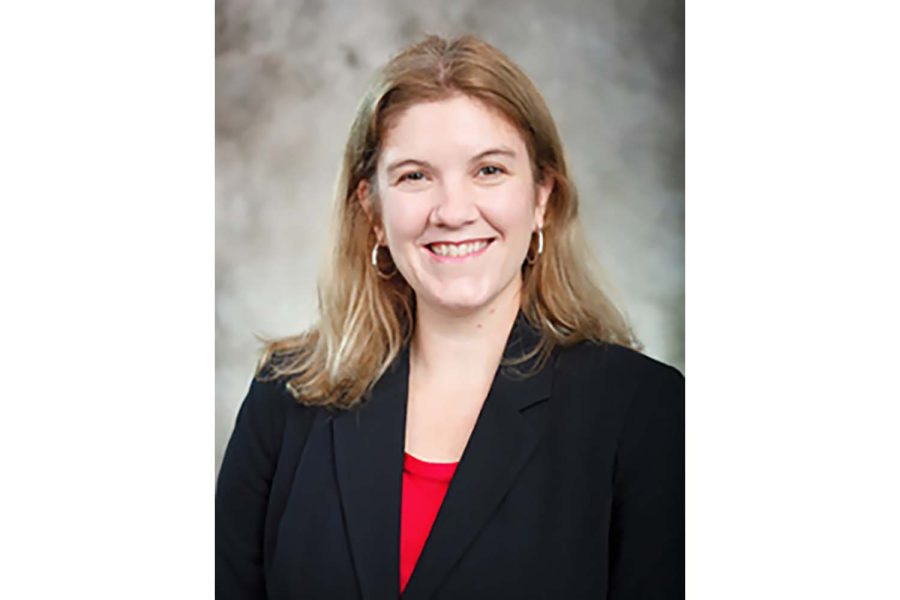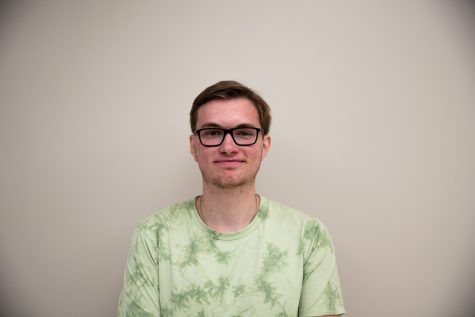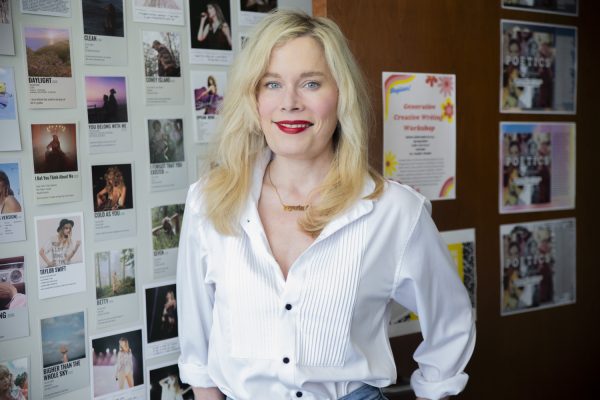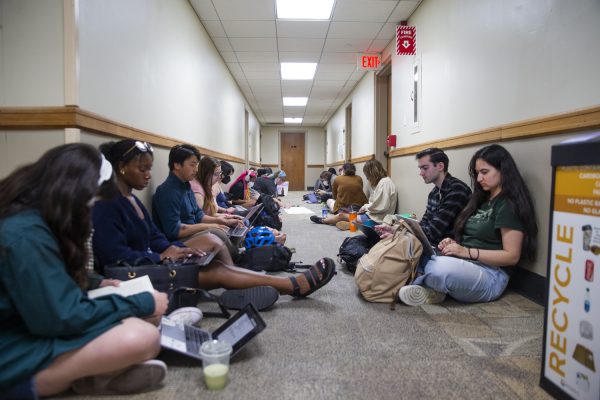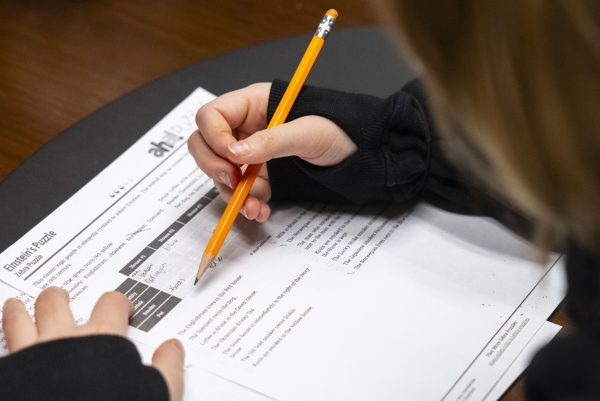UI researchers to determine how entrepreneurs balance ethics, decision-making
University of Iowa researchers are exploring how entrepreneurs work to maintain consistency between making ethical choices and those that are successful for their business.
April 10, 2022
Researchers at the University of Iowa are investigating how entrepreneurs and businesses balance ethics and decision-making in creating a successful business.
Interest in the research stems from the recent nationally-recognized unethical decision-making of Elizabeth Holmes, an entrepreneur whose company, Theranos, claimed to have a working device capable of analyzing various metrics of an individual’s health through just a small sample of blood.
A highly publicized trial in January, along with a popular podcast that has been adapted into the Hulu series *The Dropout* have brought more publicity to the Theranos story.
Miranda Welbourne Eleazar, UI Tippie College of Business assistant professor of management and entrepreneurship, said Holmes, whose supposedly revolutionary technology did not work, is an extreme example of poor ethical decision-making by entrepreneurs.
“Initially, you would think that she was a great role model for entrepreneurs,” Welbourne Eleazar said. “She started out at Stanford and dropped out and was able to be valued at a billion dollars by getting a lot of investment into this company where she was going to hopefully do something great.”
After following this situation, Welbourne Eleazar said she was interested in pinpointing how Holmes ended up at the point where she decided to balance earning investors over creating a successful, working product.
Welbourne Eleazar said while Holmes and Theranos might be one of the most radical and high-profile cases of misguided entrepreneurial ethical decision-making, other businesses have faced similar ethical problems.
JUUL, the vaping company originally focused on helping smokers to stop smoking tobacco, was forced to appear in front of Congress for marketing to children. Welbourne Eleazar said this is yet another example of the kind of decisions her research is trying to analyze.
“A lot of times I think, ‘They’re not trying to do these things, so how did they end up there?’” she said.
There must be a delicate balance between ethical decision-making and entrepreneurial success, Welbourne Eleazar said.
“We don’t want to discourage innovation by being too harsh,” she said. “Sometimes, people have this black and white view on ethics. That could make people be potentially less risk-taking if they’re afraid to get in trouble if they exaggerate.”
Karl Reinke, UI doctoral student and Welbourne Eleazar’s research assistant, said the research team will conduct interviews of entrepreneurs to shine some light on the factors that influence poor ethical decision-making.
The interviews will ask entrepreneurs in Iowa about which decisions they will make under certain pressure situations.
He said some of the established literature does show a uniquely increased pressure that can be placed on entrepreneurs.
“There can be big pressure to get sales as an entrepreneur,” Reinke said. “You need to bring the money in. The way you do that can be problematic sometimes.”
He said his interest in researching the decisions of businesses and entrepreneurs stems from his youth, where he worked with his father’s asphalt and concrete company for years, and overlaps with his undergraduate education, where he minored in philosophy and entrepreneurship.
Reinke said this research is looking to give guidance to entrepreneurs and businesses faced with tough situations.
“They’re not easy decisions, especially when you have those financial and time constraints,” Reinke said. “The problem is, I think a lot of entrepreneurs sort of have to fire at the hip when [issues] pop up. … I don’t think it has to be that way.”



